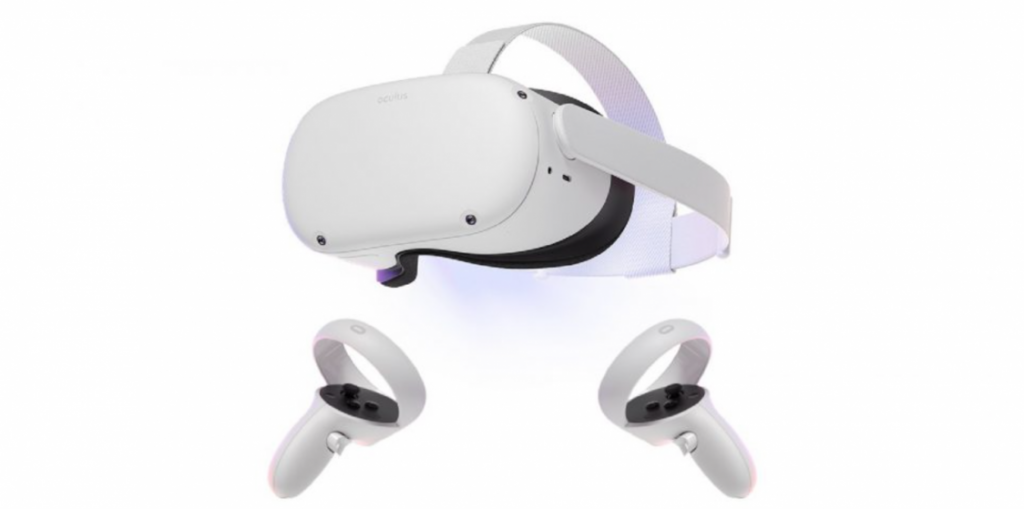
The new Meta Quest Pro will be stacked with features that are absent from Meta Quest 2. The current headset and controllers are depicted here. (Source: Meta)
New Meta VR Headset Promises to Bring Better ‘Reality’ through Project Cambria
K. Holt’s article in engadget.com details how Meta plans to release a new high-end virtual reality headset this year, which is codenamed Project Cambria. Some more details about the product, as well as Meta’s VR headset roadmap, have emerged in a report.
Spoiler alert, Cambria is expected to cost four times more than Meta Quest 2 ($299) and it is heavier. However, it will have more bells and whistles for kids and adults.
According to PCgamesn.com:
“Project Cambria also boasts eye-tracking, a feature that provides users with another method of input. The tech also allows developers to implement foveated rendering, an adaptive scaling technique that reserves high resolutions for the player’s line of sight while scaling down everything else. Not only does this make everything you’re seeing in the virtual world super sharp, but it also ensures none of the device’s processing power is going to waste.”
Cambria has been described internally as a “laptop for the face” or “Chromebook for the face,” according to The Information. It’s believed to have specs similar to that of a Chromebook and will use Meta’s own VR operating system, which is based on Android. It’s expected to be compatible with web-based tools and services, as well as some Quest apps. However, despite Meta pitching Cambria as a future-of-work device, it may not be able to run native desktop apps that are commonly used by many businesses.
Here take a look at the next step that leads to the Metaverse for all. Meta has provided a barely visible ten-second clip of what Cambria will look like.
The whole virtual reality paradigm shift that Meta is trying to lure us into does look exciting and something the average human might have fun with, but can it be used in a professional setting for business or research?
Cambria is said to have high-resolution image quality. This could allow wearers to clearly read text, so they’d be able to send emails or code while wearing the headset. In other words, it may be viable for professional purposes.
We’ve seen just one teaser image of Cambria along with some leaked renders stitched together, and they suggest the headset will be a much more compact device than even the Quest 2. This is thanks to the use of multi-element pancake lenses over the usual fresnel lenses we’ve seen in other Meta headsets of late. It’s a much more compact way of delivering images to your eyes, allowing the headset to really cut back on the bulk of the main visor.
It is an awfully intriguing concept, even for non-gamers. It could even tempt remote workers to wander off into the Metaverse.
read more at engadget.com







Leave A Comment